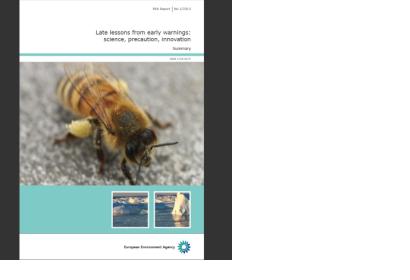New technologies have sometimes had very harmful effects, but in many cases the early warning signs have been suppressed or ignored. The second volume of Late Lessons from Early Warnings published by the European Environment Agency (EEA) investigates specific cases where danger signals have gone unheeded, in some cases leading to deaths, illness and environmental destruction.
The first volume of Late Lessons, published in 2001, was a ground breaking report detailing the history of technologies subsequently found to be harmful. The new 750-page volume includes 20 new case studies, with far-reaching implications for policy, science and society.
The report outlines the following key recommendations:
- Key recommendations Science should acknowledge the complexity of biological and environmental systems, particularly where there may be multiple causes of many different effects, the report says. It is increasingly difficult to isolate a single agent and prove beyond doubt that it causes harm. A more holistic view taking many different disciplines into account would also improve the understanding and prevention of potential hazards.
- Policy makers should respond to early warnings more rapidly, the report says, particularly in cases of large scale emerging technologies. It proposes that those causing any future harm should pay for the damage.
- Risk assessment can also be improved, the report says, by embracing uncertainty more broadly and acknowledging what is not known. For example, ‘No evidence of harm’ has often been often misinterpreted to mean ‘evidence of no harm’ when the relevant research was not available.
- The report calls for new forms of governance involving citizens in choices about innovation pathways and risk analysis. This would help to reduce exposure to hazards and encourage innovations with broader societal benefits. Greater interaction between business, governments and citizens could foster more robust and diverse innovations at less cost to health and the environment.

